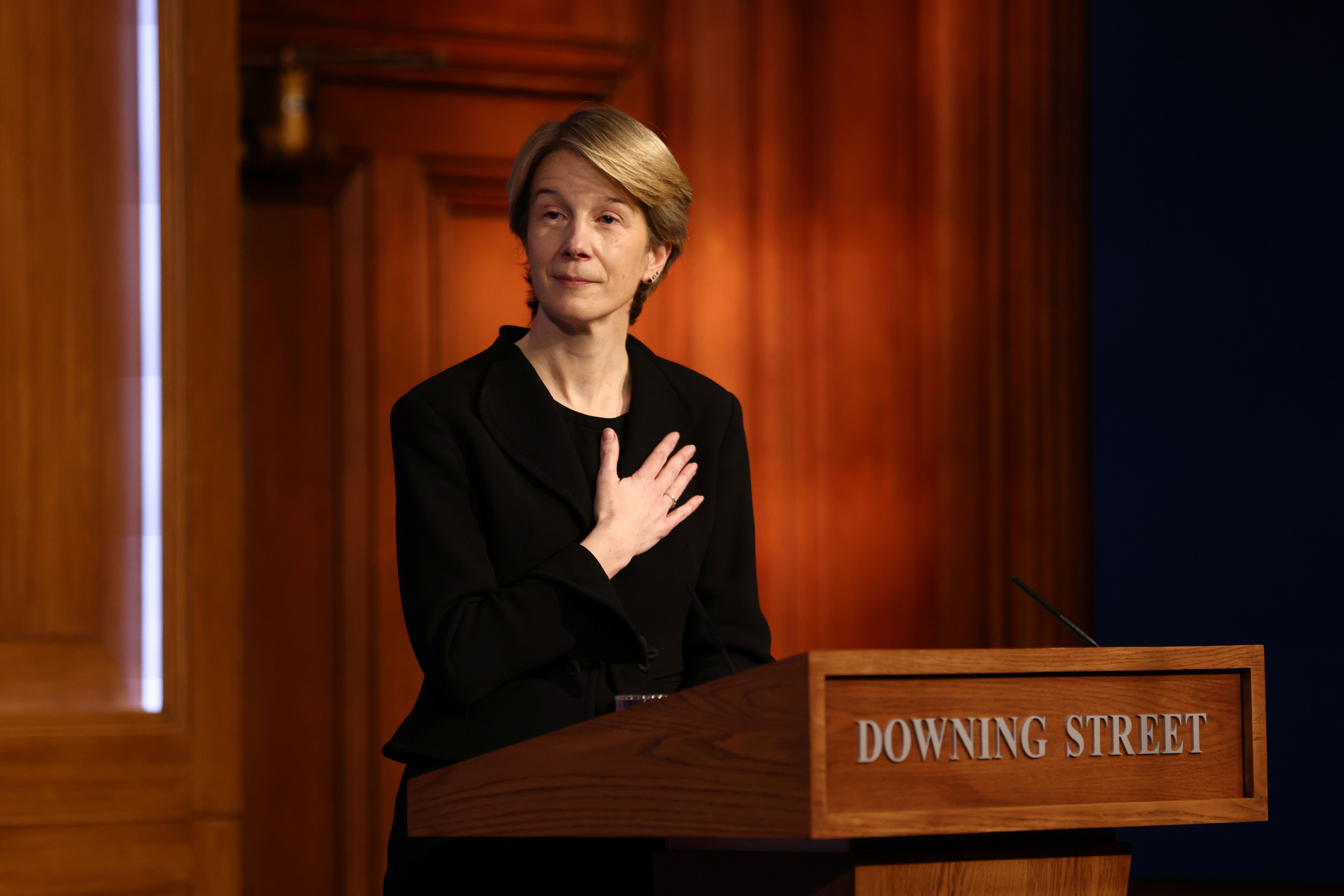Health service under pressure ‘like nothing I have ever experienced’ – NHS boss
Amanda Pritchard’s interview with The Times comes after NHS England data revealed that one in 10 people was left waiting hours for ambulances.

Your support helps us to tell the story
From reproductive rights to climate change to Big Tech, The Independent is on the ground when the story is developing. Whether it's investigating the financials of Elon Musk's pro-Trump PAC or producing our latest documentary, 'The A Word', which shines a light on the American women fighting for reproductive rights, we know how important it is to parse out the facts from the messaging.
At such a critical moment in US history, we need reporters on the ground. Your donation allows us to keep sending journalists to speak to both sides of the story.
The Independent is trusted by Americans across the entire political spectrum. And unlike many other quality news outlets, we choose not to lock Americans out of our reporting and analysis with paywalls. We believe quality journalism should be available to everyone, paid for by those who can afford it.
Your support makes all the difference.The head of the NHS has said the health service is under more pressure than she has ever seen, as she warned that recovery from the Covid-19 pandemic could take another two years.
Amanda Pritchard, chief executive of NHS England, has spoken of the importance of training places, adding that universities are having to turn away “really excellent” people.
The interview with The Times comes after NHS England data showed that one in 10 people was left waiting for ambulances for more than three-and-a-half hours after falling seriously ill – with the likes of hearts attacks, strokes and sepsis – as response times fell to the worst on record.
Demand for healthcare is only going to grow around the world over the coming years and that means greater competition for skilled staff
The average response time in December for ambulances dealing with the most urgent incidents, such as cardiac arrests, was 10 minutes and 57 seconds.
Set against a target of seven minutes, it is the worst performance on record.
For category two calls – such as suspected strokes, heart attacks, burns and epilepsy – ambulances took an average of one hour, 32 minutes and 54 seconds to respond.
That is the longest on record and well above the target of 18 minutes.
Ambulances should respond to 90% of category two calls in 40 minutes.
The figures for England also found a record 54,532 people waited more than 12 hours in A&E departments last month from a decision to admit to actually being admitted.
And the proportion of patients seen within four hours in England’s A&Es fell to a record low of 65% in December – the worst performance on record.
According to The Times, Ms Pritchard said that the NHS “would want to be very ambitious” in increasing the number of homegrown recruits.
She told the newspaper: “There’s no lack of demand. We are seeing universities having to turn away really excellent people, not just for medical degrees but nursing, therapy — across the board.
“Obviously you’re also looking at the ability of universities to ramp up the training places and of the NHS to make sure we’ve got the right clinical places, but over the next few years we would want to be in a position where we were increasingly able to be self reliant on having a workforce that would meet demand.”
According to The Times, Ms Pritchard said she wanted to stop spending £3 billion a year on agency staff and that they should be “the exception” rather than the rule.
The newspaper reported that she said it would be better if vacancies were filled by staff recruits rather than agency workers.
“Demand for healthcare is only going to grow around the world over the coming years and that means greater competition for skilled staff,” she said.
In the interview, conducted by Rachel Sylvester and The Times health editor Kat Lay, Ms Pritchard said the NHS was under extreme pressure “like nothing I have ever experienced” in her 25 years in the health service, and warned that recovery from Covid-19 could take two more years.
She described the NHS as “about halfway through” the disruption caused by the pandemic, adding: “There aren’t, I think, magic wand solutions for the level of pressure that the NHS is under.”
Ms Pritchard did say, however, that there were things the NHS could do to get into “a much stronger place over time”.